你要的������,我都有
Meet Everything You Need
——蒙式環(huán)境如何支持孩子的人類(lèi)傾向
How Montessori Classroom Support Children in Their Effort To Develop The Human Tendency
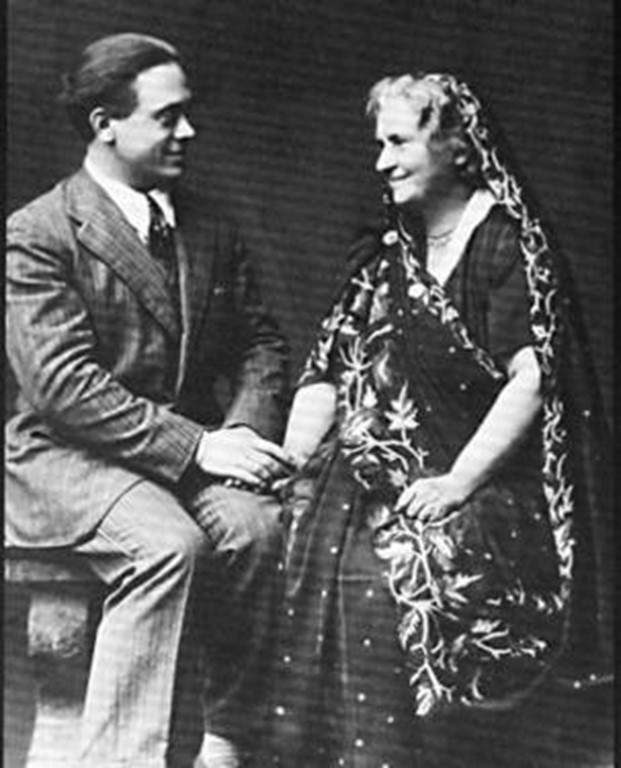
馬裡奧·蒙特梭利這樣定義人類(lèi)傾向:「人類(lèi)有某些基本因素是恆定不變的������,改變的只是我們賦予給心靈的東西(改變的是我們的精神食糧)�����。這些恆定不變的基本因素使得孩子們可以通過(guò)不同的行為模式融入任何社區(qū)���,而這些基本因素就是當(dāng)代心理學(xué)家所成的人類(lèi)傾向������。」
The definition of human tendency by Mario Montessori is: Some of the fundamental factors of human beings are constant, and what has changed is only the meaning we give to the mind (it can change our mental health). These constant fundamental factors enable children to integrate into any community through different behavior patterns, the contemporary psychologists defined these fundamental factors as the human tendency.
通俗的講����,正是人類(lèi)傾向驅動(dòng)著人類(lèi)為了某個(gè)目的做出某種行為������,這個(gè)目的首先是滿(mǎn)足自身的生存以及生理需求���,其次是滿(mǎn)足我們的心理、情緒需求������。
It is human tendency drives people to behave for certain purpose. This certain purpose normally will, in first place, satisfy people’s own survival instinct and physiological needs, and psychology and emotional needs will be followed.
這次���,我們先將目光鎖定在人類(lèi)傾向中最基本的——探索、定向、秩序�����,讓我們從兒童之家的日常起居����,來(lái)看一間蒙特梭利教室���,一位蒙特梭利老師���,是如何支持孩子們以上三個(gè)人類(lèi)傾向的發(fā)展�����。
Human tendency has three basic elements: Exploration, Orientation, and Discipline. This article will show us how Montessori class routine, Montessori classrooms, and Montessori teachers support children in their demand to develop these three human tendencies.
目之所及����,皆可探索
Explore Everything Observable
當(dāng)新生初次來(lái)到兒童之家����,面對(duì)全新的環(huán)境������,探索的人類(lèi)傾向悄然啟動(dòng)������。他需要知道在這個(gè)陌生的環(huán)境中������,哪些人、事、物可以滿(mǎn)足自己的需求���,因此他必須不斷在新環(huán)境中探索、試驗(yàn)�����。
The human tendency drives children to explore everything around them when they visit a new place — EYAS at first time. Constantly exploring new environment can help children know if there is anybody or anything in this unfamiliar environment can meet their needs.

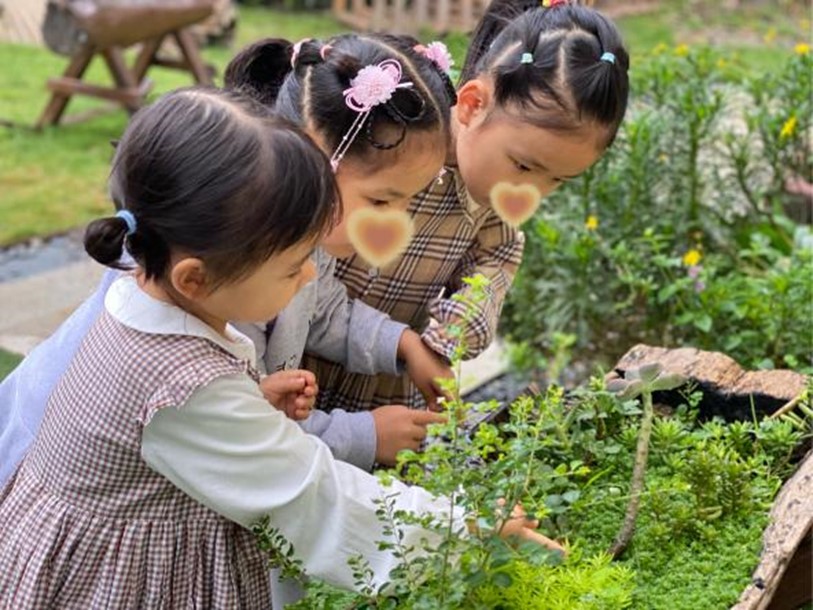
首先���,清晨的戶(hù)外活動(dòng)為孩子提供了絕佳的探索時(shí)間����。小朋友跟著小夥伴們滑滑梯、騎車(chē)子、照顧花園裡的植物了……不知不覺已然認(rèn)識了三兩(liǎng)好友����。玩耍中的探索������,讓孩子放下了心理的第一道防備�����。
The early morning outdoor activities provide the good opportunity for children to explore. They play slide, ride bikes, take care of the plants, and they make new friends naturally. Children will put down psychological defense unconsciously when they are playing or exploring.
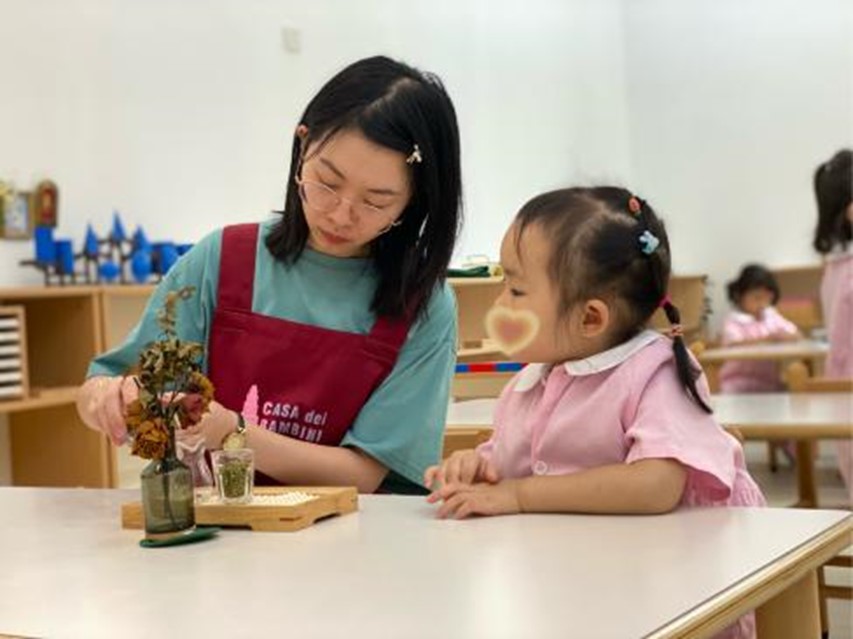
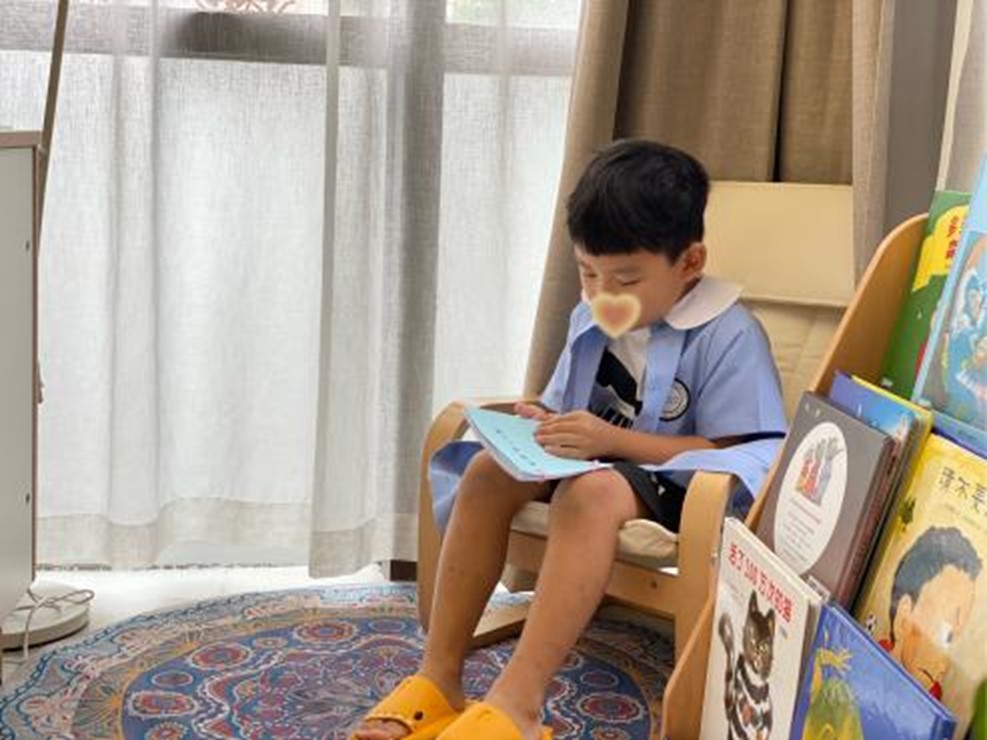
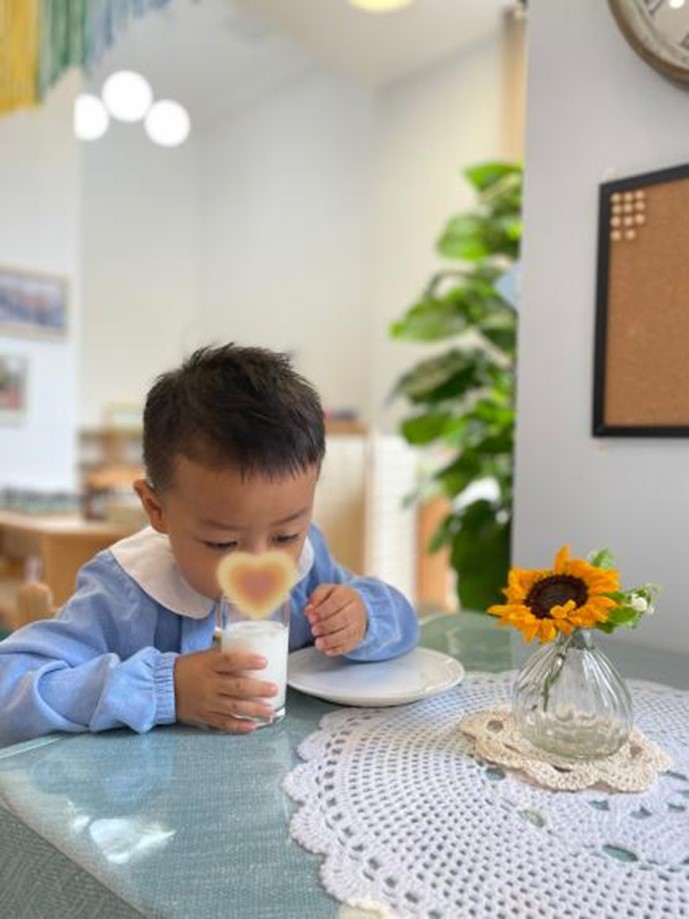
總之����,環(huán)境中的一切����,都在向這位新朋友伸出橄欖枝������,告訴他������,舉凡你看的������,你就可以探索����。
Please explore anything that you like!
固定位置的舒適感
Comfortable Sensation and Position in Class
蒙特梭利環(huán)境友好地向孩子們提供了一切探索的可能�����,在探索中����,孩子有了解自己位置的重要需求���,他總是會(huì)想盡辦法標(biāo)記自己的位置����。
Montessori environment provides children with all possibilities of exploration. A child has an important need to know his/her place in a new environment, so he/she will always try hard to mark his/her place when exploring the environment.
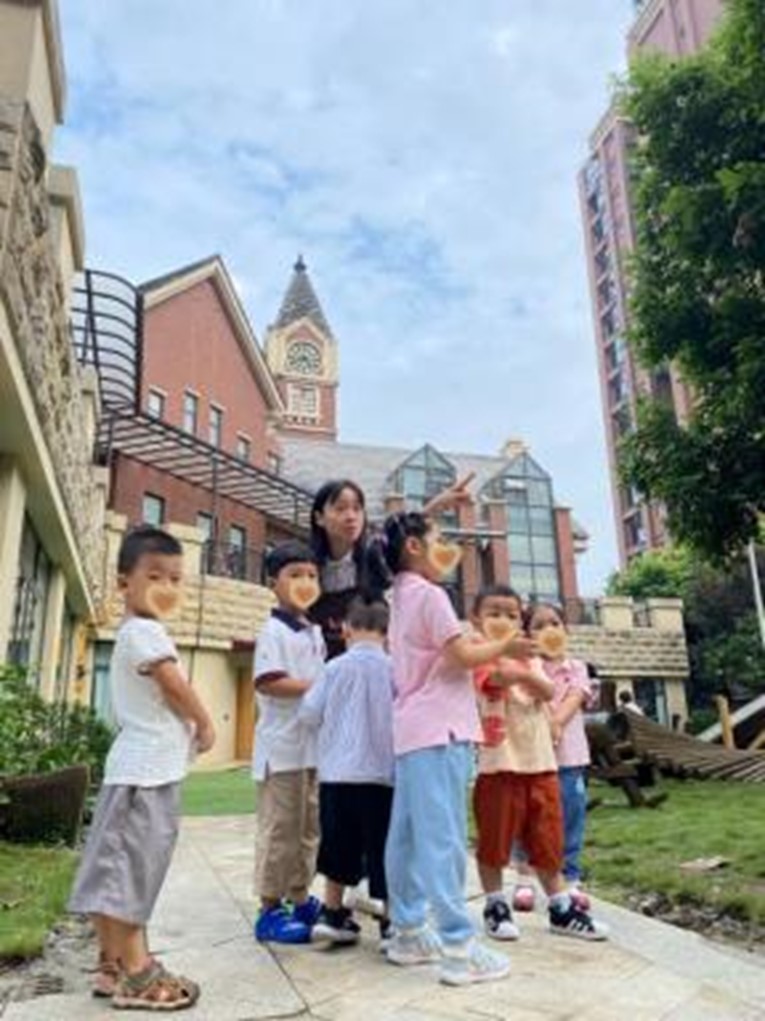
老師們總會(huì)第一時(shí)間託起他的小手������,介紹教室乃至整棟教學(xué)樓裡的各個(gè)功能區(qū)域�����。他將在哪裡洗手、如廁、用餐、午休�����,當(dāng)然������,還有專(zhuān)屬於他的各種收納空間������,鞋帽櫃、作品櫃、水杯櫃等等���。
Teachers will always introduce the environment (classrooms or even the whole school building) to children the first time they visit school, and thus they will have a clear picture about where the washrooms, eating areas, and sleeping rooms are. Of course, beside those public areas, children also have personal space to storage their shoes, works, water cup and so on.
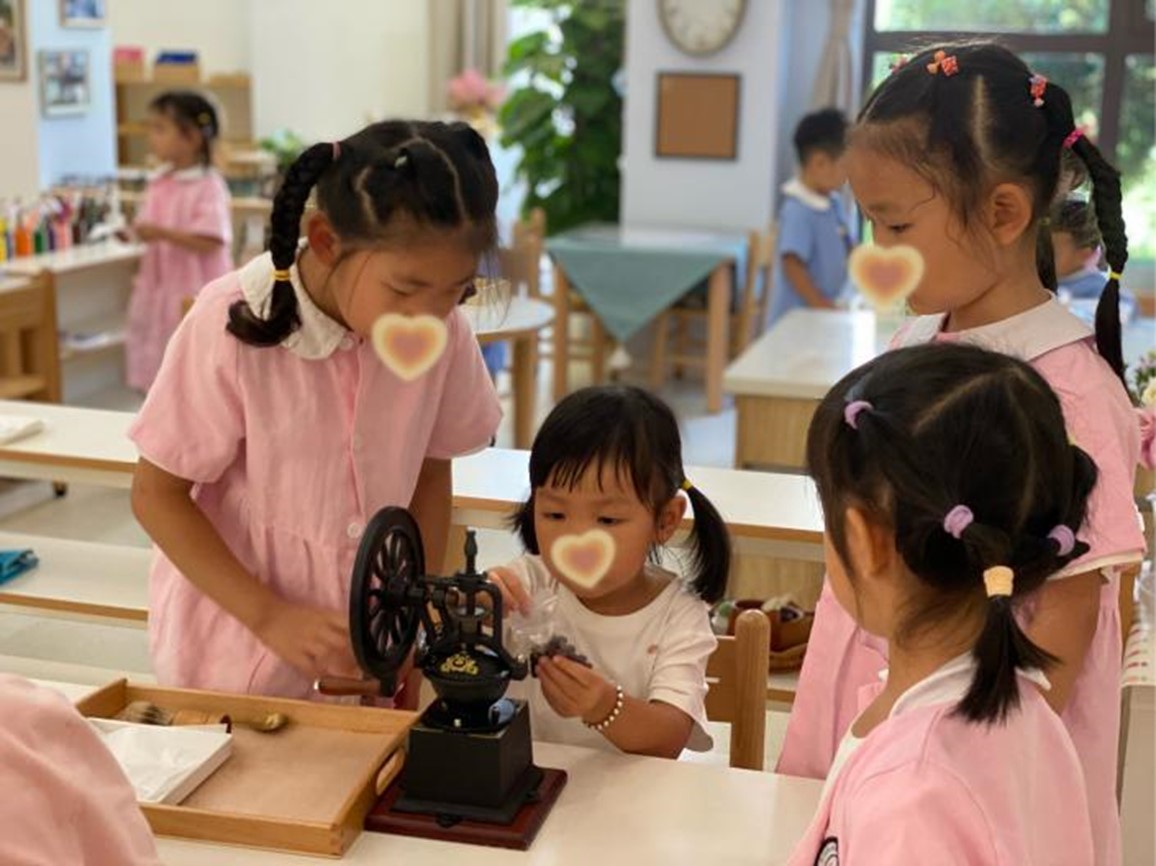
孩子通過(guò)注意環(huán)境中的物品�����,尤其是與自己緊密相關(guān)的事物為自己定位���。當(dāng)他找到新環(huán)境中某個(gè)熟悉的人、或者物品時(shí)����,他們才能獲得安全感和舒適感�����,以便自己慢慢適應(yīng)這個(gè)全新的小天地���。
Children position themselves by noticing objects in the environment, especially the objects that are closely relate to them. They gain a sense of safety and comfort when they find familiar people or objects in a new environment, and then they will start getting used to the new environment slowly.
心之所向������,秩序使然
Discipline Brings Freedom
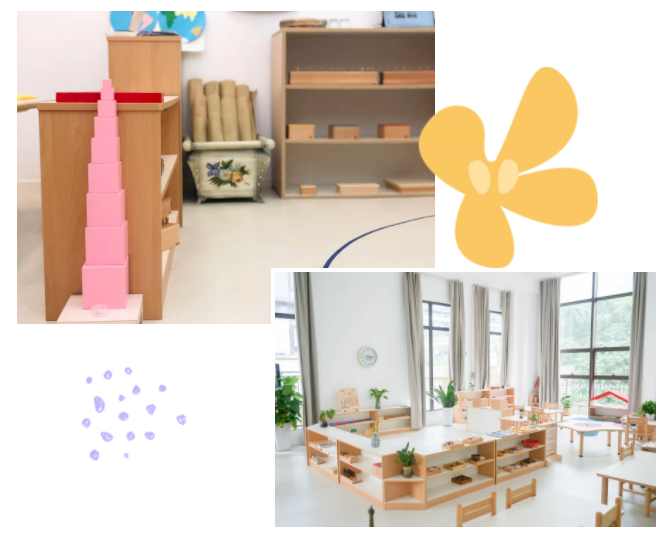
當(dāng)這個(gè)小朋友已經(jīng)藉由環(huán)境中的事物標(biāo)記自己的位置���,如若這些事物總是沒有秩序的隨意亂放����,那他如何定位自己呢?——這樣的事���,也許永遠(yuǎn)沒有機(jī)會(huì)發(fā)生在一間蒙特梭利教室中����。
When a child has learnt to locate himself / herself by referencing the position of objects in a new environment, how can they identify their position when these objects are placed out of order? However, it will never happen in a Montessori class.
蒙特梭利教室有五個(gè)區(qū)域���,從這個(gè)五個(gè)區(qū)域的位置劃(huà)分���,到每個(gè)區(qū)域的每個(gè)工作�����,皆遵循著從易到難的原則�����,這是蒙特梭利環(huán)境的基礎(chǔ)設(shè)定����。
There are five areas in the Montessori classroom. No matter the division of five areas or the work arrangement in each area, they all must follow the principle: Easy to Difficult.
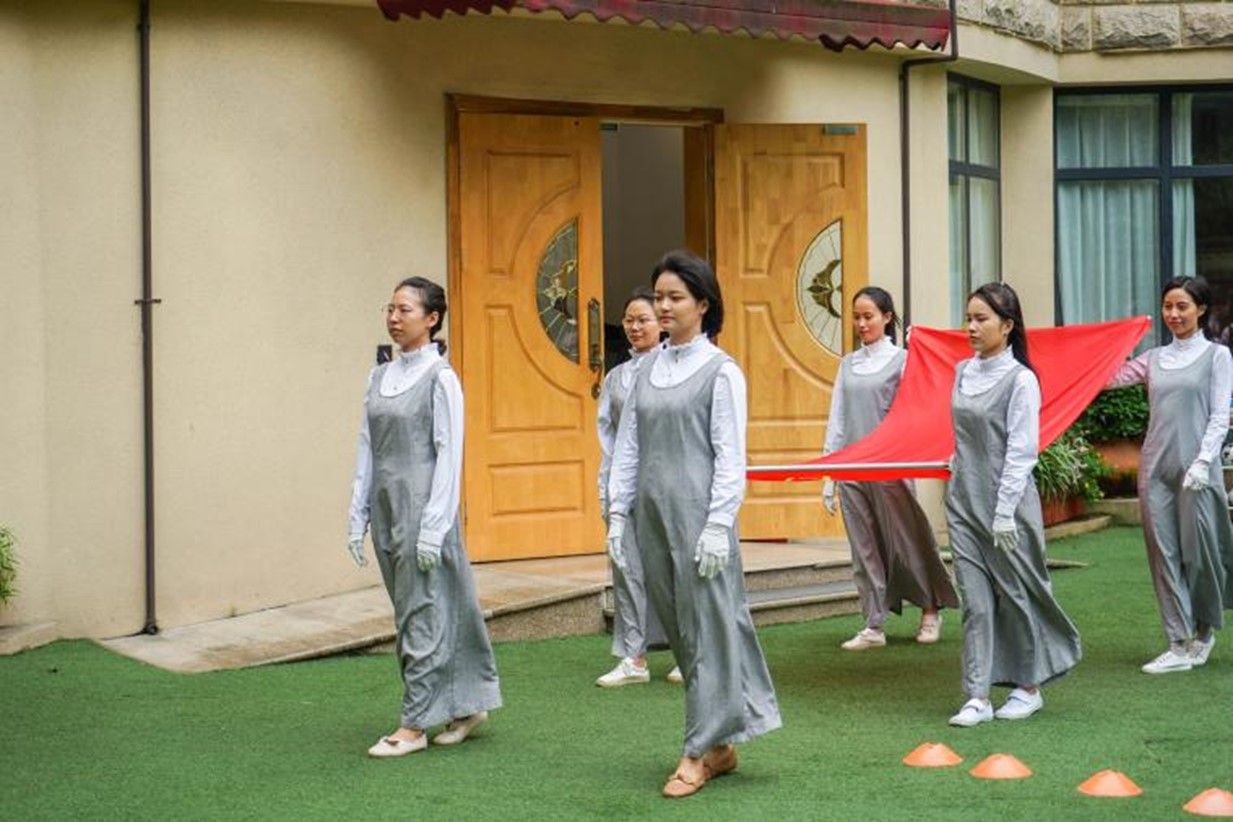
(兒童之家的重要儀式——每周一的升旗儀式)
(The weekly ceremony of EYAS - Flag-Raising Ceremony)
教室中的秩序不僅包括設(shè)施、物品的秩序������,還包含了一周的例行儀式、一日流程中工作、用餐、午休、戶(hù)外活動(dòng)的順序等�����,都按部就班地進(jìn)行著����。
The discipline in the classroom includes not only the order of facilities and objects, but also the daily routine. Every single detail and all activities are carried out step by step with following the daily routine every day.
因為幼兒在6歲之前�����,必須經(jīng)由外部的秩序方能構(gòu )建自身內(nèi)在的秩序;因此蒙特梭利環(huán)境中的一切���,才會(huì)被設(shè)計(jì)的秩序井然������,恰恰就是在滿(mǎn)足孩子們秩序的人類(lèi)傾向����。
It is the external order that helps a 0-6 years old child to build their internal discipline, therefore, everything in the Montessori environment is designed to be orderly to satisfy a child’s human tendency.
結(jié)語
Conclusion
孩子們探索、定位、秩序的人類(lèi)傾向����,是環(huán)環(huán)相扣的�����。因此老師們在打造一間蒙特梭利教室������,以及在做自我預備時(shí)�����,也總是以孩子們最基本的這三個(gè)人類(lèi)傾向作為首要考量、指導(dǎo )���。
The three Human Tendencies -- Exploration, orientation and discipline are interrelated. Teachers should take these three elements as a reference when prepare a Montessori environment.
在此������,希望讀到這篇文章的各位家長(zhǎng)也能跟隨上述的三個(gè)人類(lèi)傾向����,自查一下家庭中的環(huán)境——作為孩子們環(huán)境中最重要的成人����,我們都應(yīng)該提供一個(gè)合適的環(huán)境����,助力他們的成長(zhǎng)���。
Dear parents, we deeply hope you can follow the three human tendencies to check if there is a proper environment at home. As the person plays an important role in our children’s life, we should do everything to prepare a suitable environment for children’s growth.